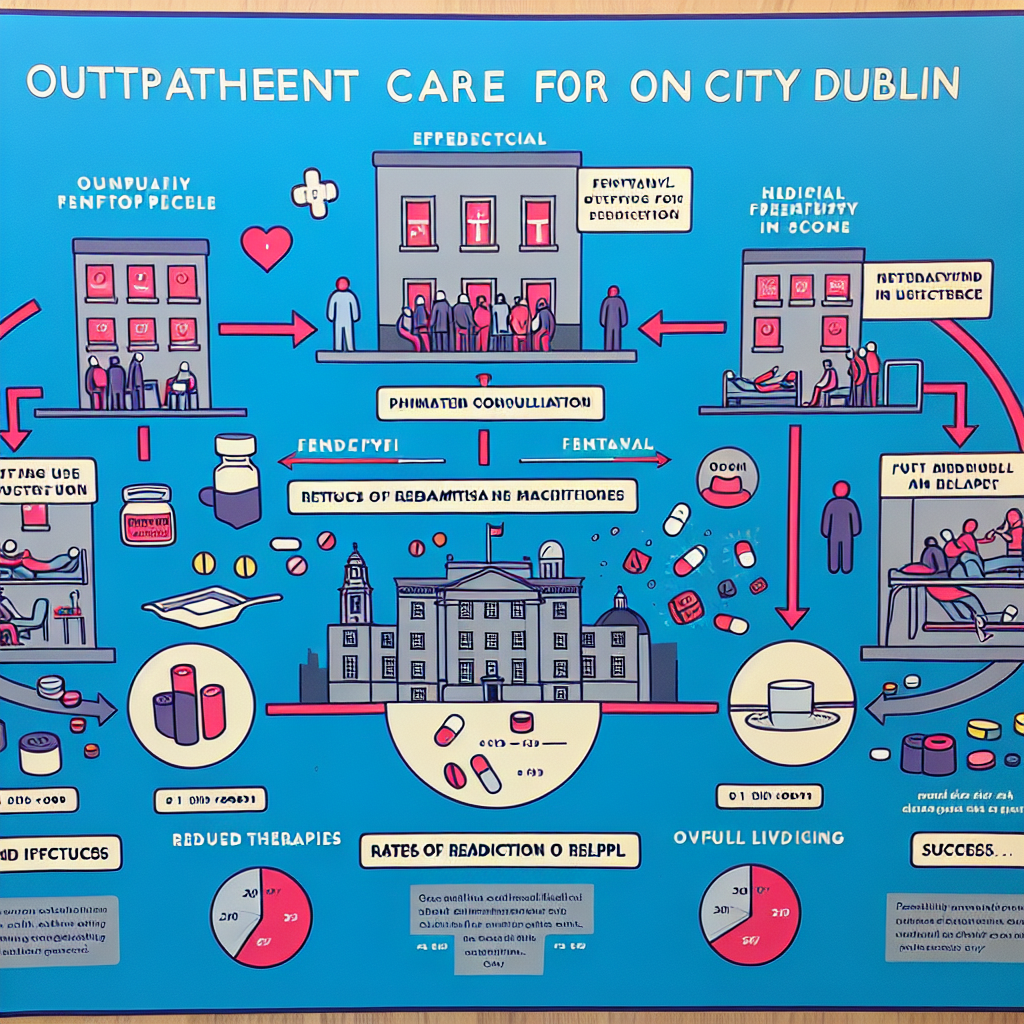-
Table of Contents

“Rewiring Thoughts, Reclaiming Lives: How Cognitive Behavioral Therapy Conquers Fentanyl Addiction”
Introduction
Cognitive Behavioral Therapy (CBT) is a widely recognized and effective therapeutic approach for treating various forms of addiction, including fentanyl addiction. Fentanyl, a potent synthetic opioid, poses significant challenges due to its high potential for dependence and overdose. CBT helps individuals struggling with fentanyl addiction by addressing the underlying cognitive and behavioral patterns that contribute to substance use. Through structured sessions, CBT enables patients to identify and modify distorted thinking, develop healthier coping mechanisms, and build resilience against triggers and cravings. By focusing on the interplay between thoughts, emotions, and behaviors, CBT empowers individuals to regain control over their lives, reduce the risk of relapse, and achieve long-term recovery.
Understanding the Role of Cognitive Behavioral Therapy in Overcoming Fentanyl Addiction
Cognitive Behavioral Therapy (CBT) has emerged as a powerful tool in the battle against fentanyl addiction, offering hope and a structured path to recovery for those grappling with this potent opioid. Fentanyl, a synthetic opioid that is significantly more potent than morphine, has been at the center of the opioid crisis, leading to a surge in addiction and overdose deaths. Understanding how CBT can aid in overcoming fentanyl addiction is crucial for those seeking effective treatment options.
At its core, CBT is a form of psychotherapy that focuses on identifying and changing negative thought patterns and behaviors. It operates on the principle that our thoughts, feelings, and behaviors are interconnected, and that altering one can lead to changes in the others. This approach is particularly beneficial for individuals struggling with fentanyl addiction, as it addresses the psychological aspects of addiction, which are often deeply intertwined with the physical dependence on the drug.
One of the primary ways CBT helps with fentanyl addiction is by teaching individuals to recognize and challenge the distorted thinking patterns that contribute to their substance use. For instance, someone addicted to fentanyl might believe that they cannot cope with stress or emotional pain without the drug. Through CBT, they learn to identify these irrational beliefs and replace them with healthier, more realistic thoughts. This cognitive restructuring is a critical step in breaking the cycle of addiction, as it empowers individuals to take control of their thoughts and, consequently, their actions.
Moreover, CBT equips individuals with practical coping strategies to manage cravings and avoid relapse. Techniques such as mindfulness, stress management, and problem-solving skills are integral components of CBT. By practicing these skills, individuals can better handle the triggers and stressors that might otherwise lead them to use fentanyl. For example, mindfulness exercises can help individuals stay present and grounded, reducing the urge to escape through drug use. Similarly, stress management techniques can provide healthier outlets for dealing with life’s challenges, making it less likely that individuals will turn to fentanyl as a coping mechanism.
In addition to these cognitive and behavioral strategies, CBT also emphasizes the importance of building a supportive environment. This often involves working on improving relationships and communication skills, which can be particularly beneficial for those whose addiction has strained their connections with loved ones. A strong support system can provide the encouragement and accountability needed to maintain sobriety, making it an essential component of the recovery process.
Furthermore, CBT is often used in conjunction with other treatment modalities, such as medication-assisted treatment (MAT). Medications like buprenorphine or methadone can help manage the physical symptoms of withdrawal and reduce cravings, while CBT addresses the psychological aspects of addiction. This comprehensive approach ensures that individuals receive holistic care, addressing both the mind and body in their journey to recovery.
The inspirational aspect of CBT lies in its empowering nature. It teaches individuals that they have the power to change their thoughts and behaviors, fostering a sense of agency and self-efficacy. This empowerment is crucial for long-term recovery, as it instills the belief that overcoming addiction is possible. By providing individuals with the tools and strategies they need to navigate the challenges of recovery, CBT offers a beacon of hope in the often tumultuous journey of overcoming fentanyl addiction.
In conclusion, Cognitive Behavioral Therapy plays a vital role in helping individuals overcome fentanyl addiction by addressing the psychological underpinnings of substance use, providing practical coping strategies, and fostering a supportive environment. Its empowering approach offers hope and a clear path to recovery, demonstrating that with the right tools and support, overcoming fentanyl addiction is not only possible but achievable.
Effective Strategies in Cognitive Behavioral Therapy for Treating Fentanyl Dependency
Cognitive Behavioral Therapy (CBT) has emerged as a powerful tool in the fight against fentanyl addiction, offering a beacon of hope for those grappling with this potent opioid. Fentanyl, known for its high potency and risk of overdose, presents unique challenges in addiction treatment. However, CBT provides a structured and evidence-based approach that addresses both the psychological and behavioral aspects of dependency, making it an effective strategy for recovery.
One of the core principles of CBT is the identification and modification of negative thought patterns that contribute to addictive behaviors. Individuals struggling with fentanyl addiction often experience a cycle of negative thoughts and emotions that perpetuate their substance use. Through CBT, therapists work with patients to recognize these destructive thought patterns and replace them with healthier, more constructive ones. This cognitive restructuring is crucial in breaking the cycle of addiction, as it empowers individuals to regain control over their thoughts and, consequently, their actions.
In addition to cognitive restructuring, CBT emphasizes the development of coping skills to manage cravings and triggers. Fentanyl addiction often involves intense cravings that can be difficult to resist. CBT equips individuals with practical strategies to cope with these cravings, such as mindfulness techniques, relaxation exercises, and problem-solving skills. By learning to manage their cravings effectively, individuals can reduce the likelihood of relapse and maintain their commitment to recovery.
Moreover, CBT addresses the behavioral aspects of addiction by encouraging individuals to engage in positive activities that promote a healthy lifestyle. Fentanyl addiction can lead to a withdrawal from previously enjoyed activities and social connections, further entrenching the individual in their substance use. CBT helps individuals identify and re-engage in activities that bring them joy and fulfillment, thereby creating a more balanced and satisfying life. This behavioral activation is a key component of recovery, as it provides individuals with alternative sources of pleasure and purpose.
Another significant aspect of CBT in treating fentanyl addiction is the focus on relapse prevention. Relapse is a common challenge in addiction recovery, but CBT equips individuals with the tools to anticipate and manage potential setbacks. Therapists work with patients to develop a personalized relapse prevention plan, which includes identifying high-risk situations, developing coping strategies, and creating a support network. This proactive approach helps individuals stay vigilant and prepared, reducing the likelihood of relapse and promoting long-term recovery.
Furthermore, CBT fosters a sense of self-efficacy and empowerment in individuals recovering from fentanyl addiction. The structured nature of CBT, combined with its emphasis on skill-building and self-reflection, helps individuals develop a greater sense of control over their lives. This empowerment is crucial in sustaining recovery, as it instills confidence and motivation to continue making positive changes.
In conclusion, Cognitive Behavioral Therapy offers a comprehensive and effective strategy for treating fentanyl addiction. By addressing both the cognitive and behavioral aspects of dependency, CBT helps individuals break free from the cycle of addiction and build a healthier, more fulfilling life. Through cognitive restructuring, coping skills development, behavioral activation, relapse prevention, and empowerment, CBT provides individuals with the tools and support they need to achieve and maintain recovery. As the battle against fentanyl addiction continues, CBT stands as a beacon of hope, guiding individuals towards a brighter, drug-free future.
Q&A
1. **Question:** How does Cognitive Behavioral Therapy (CBT) help individuals recognize and change negative thought patterns associated with fentanyl addiction?
**Answer:** CBT helps individuals recognize and change negative thought patterns by teaching them to identify and challenge distorted thinking, develop healthier coping mechanisms, and replace harmful behaviors with positive actions, thereby reducing the reliance on fentanyl.
2. **Question:** In what way does Cognitive Behavioral Therapy (CBT) assist in preventing relapse in individuals recovering from fentanyl addiction?
**Answer:** CBT assists in preventing relapse by equipping individuals with skills to manage triggers, stress, and cravings, and by helping them develop a robust relapse prevention plan that includes strategies for maintaining long-term sobriety and handling high-risk situations.
Conclusion
Cognitive Behavioral Therapy (CBT) helps with fentanyl addiction by addressing the underlying thought patterns and behaviors that contribute to substance use. It equips individuals with coping strategies to manage cravings, stress, and triggers, thereby reducing the likelihood of relapse. CBT also fosters the development of healthier habits and decision-making skills, ultimately promoting long-term recovery and improved mental health.



